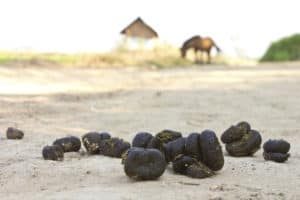
Saddle Up Safely Celebrates Three Years in Horse Riding Safety Partnership
Saddle Up Safely celebrated its third year with a day at the races and a fundraising silent auction.

Saddle Up Safely celebrated its third year with a day at the races and a fundraising silent auction.
The partnership reached a milestone when financial support from Lloyd’s topped $1 million.
The five-day conference featured plenary sessions covering infectious and parasitic diseases.

Common milkweed produces cardiac-glycosides that are toxic to horses and can cause death within 24 hours.

Sun is evaluating the regulation of interferon gamma expression in foals and its role in R. equi resistance.

Kessler is the youngest U.S. Equestrian Team member in history to take part in the Olympic Games.

Windrow composting is effective and practical for parasite control and waste management on horse farms.

The book translates scientific material into practical updated information about controlling equine parasites.

Consider these tips to help you deal with your muck piles in an environmentally friendly and compliant way.
Mike Donahue, PhD, received an award for excellence in diagnostic veterinary microbiology.

Researchers are taking the next step and asking questions about the information the equine genome contains.
After declining for three straight years, Kentucky farm-level equine receipts increased in 2011.
Hestad studied how endophyte-infected tall fescue seed ingestion would affect nonpregnant mares.

The money will fund a training program for beginning farmers and those who are considering careers in farming.

Recent study results showed that the presence of Strongylus vulgaris, the most pathogenic equine parasite, was significantly associated with the time elapsed since the most recent deworming.
Fall armyworms should not affect horses’ health or be confused with the Eastern tent caterpillar.
Stay on top of the most recent Horse Health news with